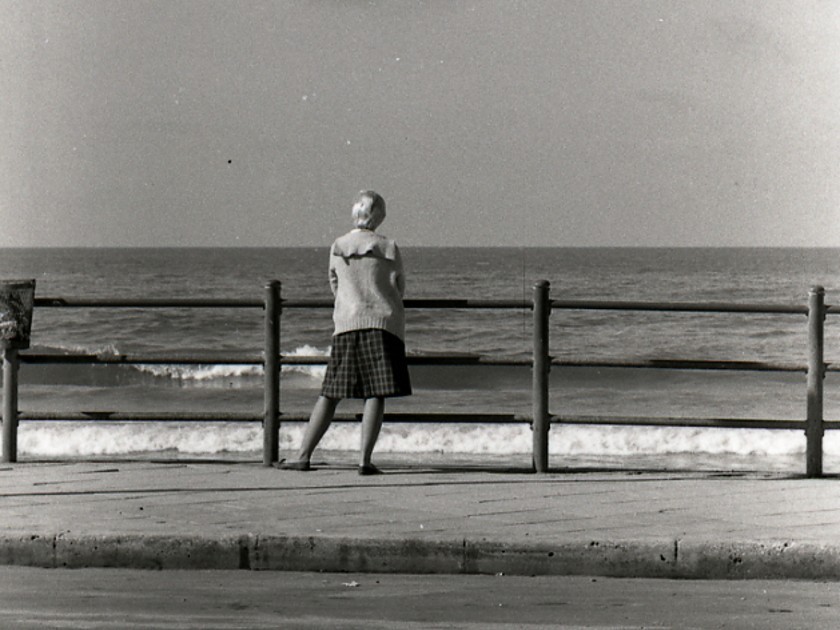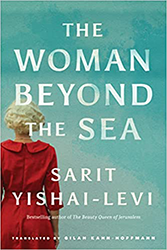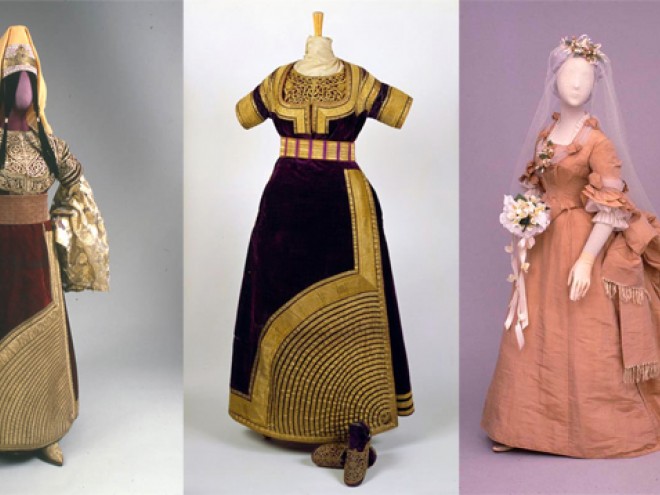
Jaffa, 1963
Photograph by Boris Carmi
Content warning, there is a description of a suicide attempt.
Like me, Lily didn’t have any brothers or sisters. And worse still, she didn’t even have parents, so not only was I an only child, but I didn’t have a grandmother or a grandfather on her side, or aunts or uncles or cousins, like all the other children I knew. At least my father wasn’t an orphan; at least on his side I had grandparents. Even if I rarely saw them, because they irritated Lily too.
Daddy’s parents, Grandma and Grandpa Zoref, lived on Shabazi Street in the Neve Tzedek neighborhood near the city of Jaffa by the sea, and my sole uncle, Shmulik, or Sam as he was now called, lived in America, where he’d gone right after he’d finished his army service. He’d married Ida, an American Jewish woman who Lily referred to as “Her Highness.” I’d never met his children. This uncle would visit Israel once every two years, and every time he came, with or without Her Highness, Lily would get angry with my father and my grandparents for eagerly anticipating his arrival.
“I won’t lift a finger for your Ameri-show-off brother,” she would declare as Daddy did his best to prepare an extra-special festive meal, and she demonstratively refused to set the table. And when my grandparents and my uncle arrived for dinner, she would sit there scowling, and the more she scowled, the more I smiled. I was happy that finally it wasn’t just the three of us. For a moment we were like all the other families I knew, sitting around the table for supper, even if out of six people, five were adults and two of them really old. Despite everything we were cheerful, except for Lily, who narrowed her eyes at my father and was silent most of the time, hardly responding when someone spoke to her.
Those visits were special occasions for me and a break from the stifling routine that prevailed in my childhood home. Each time he came, he took the family out for dinner to Tziyon’s Restaurant in the Kerem HaTeimanim neighborhood. Of course Lily would make her usual scene and say that he was flashing his dollars around as if he were some kind of American millionaire, when in fact he was nothing more than a garage owner from Brooklyn.
My poor father, torn between Lily and Sam, would make futile efforts to calm her down. “For goodness’ sake, Lily, my brother only visits once every two years. Please don’t force me to hurt his feelings for the two weeks he’s here.
“I can’t bear it when you make yourself into a doormat for him,” she would say, losing her temper. “I can’t bear it that your mother behaves as if he’s her only son. As if he even bothers with her when he’s in his precious America. It’s you who runs all your parents’ errands to the insurance institute and the health fund and the bank. He hasn’t even introduced her to his children, and to her he’s the king of the world.”
My heart contracted with envy when I saw other families hosting their relatives on the day of rest, Shabbat, and for holiday meals. And I hated the New Year holiday most of all. Through the open windows I heard the sounds of families chanting holiday blessings and prayers, laughter and commotion and the happy shrieks of children, while we were three silent people. The only way I could survive that pathetic meal was to lose myself in a fantasy world where I was surrounded by doting relatives. I squeezed my eyelids shut until Lily’s voice roused me from my reveries. “Again you’re dreaming. Finish what’s on your plate and clear the table.”
Until I was six, we spent holidays with Grandma and Grandpa Zoref. On the eve of the Passover Seder, Lily condescended to go to their house, and I would sit with the four adults, shy about declaiming the Four Questions traditionally recited by the youngest person present. I loved to visit them. I loved to go there because of the tight hug I always received from my grandmother, who seemed overjoyed to see me, and the touch of my grandfather’s warm hand on the top of my head as he kissed my forehead and murmured a blessing. I especially loved being showered with presents. “Those toys aren’t for a child her age,” Lily would carp to my father, and “Those clothes are from the Carmel Market.” I didn’t care. I was so thrilled to receive gifts from people whose love for me was palpable, so excited to feel like a real family. I longed for my father to take me to America to meet my cousins and to have someone my age who wasn’t just a friend but a relative, a real member of my family, a cousin.
Once I asked, and my father laughed and said that as soon as he won the lottery, he’d take me to America to see my cousins, who lived in a building that almost reached the sky. All my father’s dreams were channeled to the Mifal HaPais, the national lottery, and mine were swept up in the same current. Every time I asked for something he couldn’t afford, he would promise that when he won the lottery, he would make my wish come true. We would travel to America when he won the lottery; he would buy me a bicycle when he won the lottery; he would sign me up for ballet lessons when he won the lottery. And every time I walked past the dilapidated little kiosk on Dizengoff Street opposite the David’s Palace Movie Theater that sold lottery tickets, I couldn’t understand how a place full of so much money could look so run down.
My heart contracted with envy when I saw other families hosting their relatives on the day of rest, Shabbat, and for holiday meals.
Now, I wished that when he finally won the lottery, my daddy would buy a machine that would turn me back into the person I had been before Ari. A promising young student in the Department of English Literature at Tel Aviv University who dreamed of having a Friday-morning radio show about authors and books.
Where were those dreams? What had happened to me? How could I have married a man who controlled me exactly the same way my mother did my father? Lord in heaven, I suddenly realized, I’d married my mother.
My thoughts assailed me, pouring relentlessly into my mind. I could hear them pounding in my head, straining my temples. Any moment now they would be putting me in a straitjacket, sending me to the nuthouse at Abarbanel. I couldn’t endure the raging torrent of thoughts, couldn’t abide myself — someone had to stop this dance of demonic images that was pushing me to the edge, had to rip up the horror movie playing in my head, disconnect me from it, release me!
My father told me my screams brought him and Lily racing to my room. “It was lucky,” he said, “you didn’t lock the door.” They found me sitting on my bed, slicing at my wrists with a razor. Cutting and screaming, cutting and weeping. Lily, who in a crisis was always more quick witted than my father, knocked the razor from my hand as I struggled with her, crying and screaming. While my father called an ambulance, my mother held my wrists with her thumbs and managed to stem the flow of blood. By the time they carried me to the ambulance on a stretcher, I had lost consciousness.
“My sweetheart,” I heard my father say as if from a distance, “are you awake?” I opened my eyes and saw that I was lying in a hospital bed, hooked up to an IV. I couldn’t sit up. My wrists were bandaged and painful, my mouth so dry that though I wanted to answer my father, it was hard to speak.
“What happened to me?” I whispered.
“Everything’s fine now, darling,” my father said. “Rest. The most important thing is for you to rest.”
“What happened?” I whispered again.
“You tried to kill yourself — that’s what happened,” Lily said curtly, pulling no punches, as usual.
“Go outside, Lily.” My father was unusually firm and decisive. “Go get some coffee; you’ve had a rough night. I’ll stay here with Eliya.”
“Sweetheart,” my father said when Lily left the room, “let’s wait for the doctor to come and talk to you. Then I’ll tell you what happened.”
“Whatever you say,” I answered wearily, and I closed my eyes.
I was worn out, my heart beating so fast that I could feel it pulsing in my head. I kept my eyes closed. I couldn’t even manage to kill myself. I had failed at even that. Tears poured from my eyes again, and I sobbed and sobbed until I plunged into another deep sleep.
Hours later, when I woke, my parents were standing by my bed.
“You have to eat,” said Lily in a businesslike tone. “There’s mashed potatoes and some soup. Eat — it will make you stronger.”
I pressed my lips together like an obstinate child and refused to open my mouth.
I saw their exchange of glances. Lily seemed to be at her wits’ end. She was trying not to show it, but she was on the verge of tears, and I’d never seen Lily with tears in her eyes.
I remembered hearing her voice from the other side of my locked door, reprimanding my father and telling him to stop behaving like a dish towel. “You have to behave normally around her, even though she hasn’t left her bed for months. Only then, when she sees that despite the fact that she won’t get out of bed, the household is still running normally, will she pull herself out of this state.” How angry I had been when I’d heard what she’d said.
Now I detected a fault in the foundation of Lily, who I’d always believed to be made of stone, and I was mesmerized by this intimation that she had what I had never believed she possessed — sensitivity. And maybe she was capable of feeling fear. She looked frightened.
“I’m going to call the doctor,” my father said, and he left the two of us alone.
Lily sat on the edge of the bed and took my hands in hers. “Look how thin they are, like chicken feet.” I wasn’t used to demonstrations of affection from her. She brought my hands to her lips and kissed my palms, her tears falling on them. That day in the hospital was the first time I saw her cry, and I think it was also the first time she kissed me. I’d never felt so confused and bewildered. I wasn’t sure whether I wanted to grab back my hand or put my head on her breast and cry with her.
Excerpted from The Woman Beyond The Sea by Sarit Yishai-Levi. © 2023 Published by Amazon Crossing, March 21, 2023. All Rights Reserved.
Sarit Yishai-Levi is a renowned Israeli journalist and author. In 2016 she published her first book, The Beauty Queen of Jerusalem. It immediately became a bestseller and garnered critical acclaim. The book sold more than three hundred thousand copies in Israel, was translated into ten languages, and was adapted into a TV series that won the Israeli TV award for best drama series. It also won the Publishers Association’s Gold, Platinum, and Diamond prizes; the Steimatzky Prize for bestselling book of the year in Israel; and the WIZO France Prize for best book translated into French.
Yishai-Levi’s second book, The Woman Beyond the Sea, was published in 2019. It won the Publishers Association’s Gold and Platinum prizes and was adapted for television by Netflix.
Yishai-Levi was born in Jerusalem to a Sephardic family that has lived in the city for eight generations. She’s been living with her family in Tel Aviv since 1970.
Gilah Kahn-Hoffmann moved from Montreal to Jerusalem after studying theater, literature, and communications at McGill University. Starting out as a freelance journalist, translator, writer, and editor, she became a feature writer at the Jerusalem Post and, subsequently, editor of the paper’s youth magazines. Later, during a stint as a writer at the Israel Center for the Treatment of Psychotrauma, she discovered how fulfilling it is to work for the benefit of others and moved to NGO work in East Jerusalem and the developing world. In recent years, she’s come full circle to her first loves and spends her best hours immersed in literary translation.



